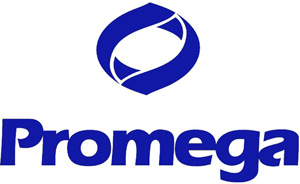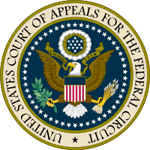[author: Donald Zuhn]
 Last month, in Promega Corp. v. Life Technologies Corp., the Federal Circuit affirmed a decision by the District Court for the Western District of Wisconsin granting a motion to compel arbitration by Invitrogen IP Holdings, Inc. The appeal involved a 1996 licensing agreement between Research Genetics, Inc. and Promega Corp. concerning German, U.S., European, and Japanese patents (including U.S. Patent No. RE37,984) directed to genetic identification. The agreement contained provisions specifying that the agreement could "not be assigned by either party without the express written consent of the other party," and that "[a]ll controversies or disputes arising out of or relating to this Agreement, or relating to the breach thereof, shall be resolved by arbitration."
Last month, in Promega Corp. v. Life Technologies Corp., the Federal Circuit affirmed a decision by the District Court for the Western District of Wisconsin granting a motion to compel arbitration by Invitrogen IP Holdings, Inc. The appeal involved a 1996 licensing agreement between Research Genetics, Inc. and Promega Corp. concerning German, U.S., European, and Japanese patents (including U.S. Patent No. RE37,984) directed to genetic identification. The agreement contained provisions specifying that the agreement could "not be assigned by either party without the express written consent of the other party," and that "[a]ll controversies or disputes arising out of or relating to this Agreement, or relating to the breach thereof, shall be resolved by arbitration."
Following Research Genetics' merger with Invitrogen Corp., Promega granted written consent allowing Research Genetics to assign its rights under the agreement to Invitrogen. Two years later, Promega again granted written consent allowing Invitrogen to assign its rights under the agreement to Invitrogen IP Holdings. Following Invitrogen's merger with Applied Biosystems Inc., the combined company changed its name to Life Technologies Corp., with Invitrogen IP Holdings remaining a wholly owned subsidiary of Life Technologies.
 After acquiring information regarding payments by Promega on its sublicensees' sales of products incorporating the licensed patents, Life Technologies notified Promega of its alleged noncompliance with the agreement. When negotiations between the parties failed to resolve the issue, Life Technologies demanded arbitration pursuant to the agreement's arbitration clause. Promega responded by filing suit against Life Technologies, seeking a declaratory judgment of non-arbitrability of Life Technologies' claims and alleging infringement of five patents (including the '984 patent). With respect to the issue of arbitration, Promega contended that the rights under the agreement had never been assigned to Life Technologies and therefore that Life Technologies was not entitled to demand arbitration. After discovering that Invitrogen IP Holdings had not assigned its rights under the agreement to Life Technologies, Invitrogen IP Holdings served Promega with a demand for arbitration on its behalf and filed a motion to compel arbitration. Following limited discovery on the issues of whether Invitrogen IP Holdings was the current assignee of the agreement and whether it maintained its legal existence, the District Court entered an order compelling arbitration between Promega and Invitrogen IP Holdings with respect to claims relating to the agreement. The District Court's order was certified as a final order and Promega appealed.
After acquiring information regarding payments by Promega on its sublicensees' sales of products incorporating the licensed patents, Life Technologies notified Promega of its alleged noncompliance with the agreement. When negotiations between the parties failed to resolve the issue, Life Technologies demanded arbitration pursuant to the agreement's arbitration clause. Promega responded by filing suit against Life Technologies, seeking a declaratory judgment of non-arbitrability of Life Technologies' claims and alleging infringement of five patents (including the '984 patent). With respect to the issue of arbitration, Promega contended that the rights under the agreement had never been assigned to Life Technologies and therefore that Life Technologies was not entitled to demand arbitration. After discovering that Invitrogen IP Holdings had not assigned its rights under the agreement to Life Technologies, Invitrogen IP Holdings served Promega with a demand for arbitration on its behalf and filed a motion to compel arbitration. Following limited discovery on the issues of whether Invitrogen IP Holdings was the current assignee of the agreement and whether it maintained its legal existence, the District Court entered an order compelling arbitration between Promega and Invitrogen IP Holdings with respect to claims relating to the agreement. The District Court's order was certified as a final order and Promega appealed.
 In a split decision affirming the District Court's order compelling arbitration, Judge Dyk, writing for the Court, begins by noting that the Federal Arbitration Act (FAA) mandates enforcement of valid, written arbitration provisions, "establish[ing] a national policy favoring arbitration when the parties contract for that mode of dispute resolution." Judge Dyk then addressed each of Promega's arguments as to why it should not be compelled to arbitrate.
In a split decision affirming the District Court's order compelling arbitration, Judge Dyk, writing for the Court, begins by noting that the Federal Arbitration Act (FAA) mandates enforcement of valid, written arbitration provisions, "establish[ing] a national policy favoring arbitration when the parties contract for that mode of dispute resolution." Judge Dyk then addressed each of Promega's arguments as to why it should not be compelled to arbitrate.
As to Promega's argument that the arbitration clause was permissive rather than mandatory (with Promega noting that the agreement states that the parties "may invoke the arbitration provision" if there is a dispute over whether a material breach has occurred), the Court countered that "[w]hile the agreement does not compel a party to demand arbitration, once a party does so, the plain language of the 1996 agreement shows that arbitration is mandatory, not permissive." With regard to Promega's argument that Invitrogen IP Holdings is merely a shell subsidiary, that the real party-in-interest is Life Technologies, and that there was no agreement between Promega and Life Technologies to arbitrate, the Court stated that "[b]ecause there was no assignment, the rights under the 1996 agreement remain with IP Holdings," and "[b]ecause there is no dispute that IP Holdings remains a corporation in good standing under Delaware law, we conclude that there is a valid agreement between Promega and IP Holdings to arbitrate."
With respect to Promega's argument that the arbitration provision does not encompass the dispute over Promega's alleged failure to pay royalties because the parties intended arbitration to apply only to small disputes between non-competitors, the Court noted that the agreement's arbitration clause "is not limited to small disputes, or to disputes with those who do not compete with Promega," but rather, "clearly and unambiguously applies to all disputes arising out of or relating to the 1996 agreement." As for Promega's argument that compelling arbitration would be unjust and unfair because the agreement's arbitration procedures do not permit third-party discovery, the Court pointed out that the agreement provides that during arbitration, "either party may engage in discovery upon any matter, not privileged, relevant to the dispute, claim or controversy," including "written interrogatories, requests for production of documents and tangible things, requests for admissions and oral depositions of the other party and its employees," and further, that Invitrogen IP Holdings represented during oral argument that Life Technologies would consent to discovery and the production of relevant documents during arbitration.
Promega also argued that arbitration was inappropriate given that its infringement claims remained pending in the District Court. In rejecting this argument, the Federal Circuit noted that "[t]he district court's duty to compel arbitration is not altered by the fact that non-arbitrable claims may remain pending in the district court." As for Promega's equitable defenses of laches, waiver, unjust enrichment, and estoppel, the Federal Circuit stated that "[d]efenses to liability under the agreement must be raised before the arbitrator," adding that "[t]here is no claim here that there is a ground for revocation of the agreement itself."
In a short dissent, Judge Newman stated that "there is no agreement to arbitrate as between the parties in interest for this dispute," noting that "[n]o consent was given to assignment of the contract to Life Technologies." She therefore concluded that "[i]n the absence of agreement to arbitrate, arbitration cannot be imposed."
Promega Corp. v. Life Technologies Corp. (Fed. Cir. 2012)
Panel: Chief Judge Rader and Circuit Judges Newman and Dyk
Opinion for the court by Circuit Judge Dyk; dissenting opinion by Circuit Judge Newman